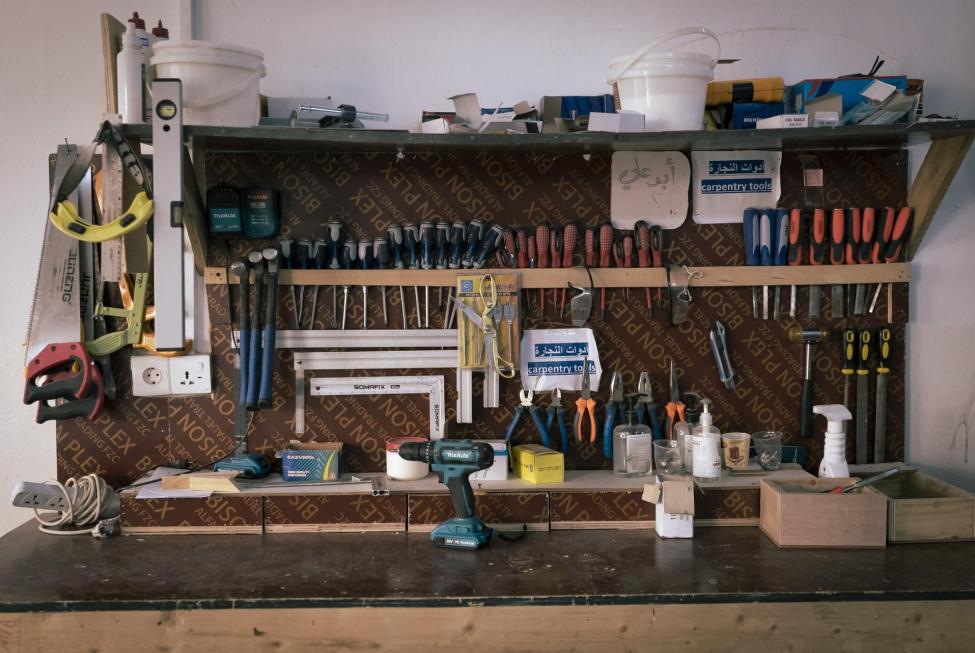-
Who We Are
WHO WE AREThe International Organization for Migration (IOM) is part of the United Nations System as the leading inter-governmental organization promoting since 1951 humane and orderly migration for the benefit of all, with 175 member states and a presence in over 100 countries. IOM has had a presence in Iraq since 2003.
About
About
IOM Global
IOM Global
-
Our Work
Our WorkAs the leading inter-governmental organization promoting since 1951 humane and orderly migration, IOM plays a key role to support the achievement of the 2030 Agenda through different areas of intervention that connect both humanitarian assistance and sustainable development. Across Iraq, IOM provides a comprehensive response to the humanitarian needs of migrants, internally displaced persons, returnees and host communities.
Cross-cutting (Global)
Cross-cutting (Global)
- Data and Resources
- Take Action
- 2030 Agenda
Taha was displaced from his home in Gayyara in 2014. He and his family have been living in Hassam Sham camp for the internally displaced since 2017, where he takes care of his deceased brother’s four kids.
“I am a person who likes learning, and when I heard about this training that combines livelihoods skills and mental health and psychosocial support (MHPSS), I immediately applied. For the livelihoods part, it was a carpentry workshop during which I learned how to use different carpentry tools. I can now make chairs, tables, stools, closets. I can make stools in a matter of minutes. I feel like I want to do carpentry for the rest of my life after I return to my area of origin — either to set up my own business or work for a carpentry place because I have acquired the skills, and I have a certificate for it. This gives me a great sense of achievement.
“As for the MHPSS part, I learned skills that help me cope with my situation in the camp and help me organize my personal life a bit, such as time management, problem solving and more. For me, it was the MHPSS part that turned my life around completely.
“By participating in the MLI training, I learned many things, including time management and problem solving. I have a dedicated time for everything now. I have time for kids, time for family meals, for family gatherings, for my trainings, my wife and more. And whenever I face a problem, I write it down, analyze it and ask myself why it happened in order to get to the root of the cause. Then, based on that, I propose a solution. If one solution doesn’t work, I look for other solutions in this same manner. And this gives me an even greater sense of achievement.
“Before taking part in the MLI training, I was in a terrible state of mind — as are many people in the camp. I used to spend most of my time lying down and sleeping during the day and on my phone at night until very late. My life was a mess because there are no job opportunities, no recreational activities to keep you busy, and you can’t just return to your area of origin whenever you want. I was struggling, and I didn’t know how to deal with my problems. I didn’t pay attention to the kids. I didn’t have time for my family. I did not do anything useful for myself, either.
“Most of the IDPs in the camp are here in body only — our minds and hearts are where we come from, yet we can’t just return there. We need to learn to live in the moment until we can return because this state of being in limbo is very excruciating. We need to learn to deal with it and be able to live in the moment until we can return. And this is exactly what the training addressed and helped us achieve.
IOM Iraq’s MHPSS and livelihoods integration (MLI) approach brings MHPSS into existing or new livelihood projects to provide livelihood participants with social, life and other soft skills, as well as coping mechanisms to mitigate and manage work-related psychosocial challenges and stressors. For more on MLI, please click here: https://iraq.iom.int/sites/g/files/tmzbdl1316/files/documents/mhpss-and-livelihood-integration-mli-manual-en.pdf
This MLI initiative was made possible with support from the Government of the Republic of Korea.





